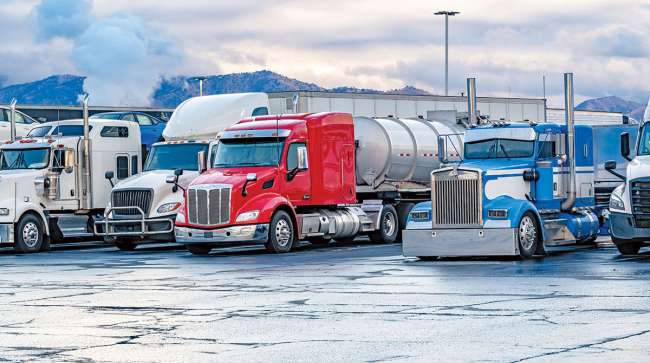Senior Reporter
House Panel Evaluates Supply Chain Concerns

[Stay on top of transportation news: Get TTNews in your inbox.]
WASHINGTON — House transportation policymakers expressed bipartisan support for pursuing initiatives meant to improve safety and workforce accommodations across the freight sector.
Initiatives that would expand access to parking for truck drivers as well as integrate tools for advancing productivity and safety were examined during a hearing of the Highways and Transit Subcommittee on May 10.
The panel’s aim is to improve recruitment efforts targeting truckers, as well as enhancing the flow of freight along corridors in a post-pandemic economy. Improving freight connectivity would help prevent supply chain disruptions.
“We need to make it easier for women and men to choose this profession, which is one of the most common paths to a middle-income lifestyle that does not require a college degree. This means attracting more potential drivers earlier in their working career and making it easier to train and test for a commercial driver’s license,” subcommittee Chairman Rick Crawford (R-Ark.) explained at the hearing.
“We also must improve the quality of life for truckers on the road, so that they will choose to stay in this profession,” he said, adding, “Increasing the amount of available truck parking will help improve the quality of life for truck drivers, while preserving safety and productivity.”
The chairman pointed to legislation introduced this year designed to enhance parking capacity for the women and men who operate commercial vehicles. Crawford also highlighted U.S. Department of Transportation programs to recruit and retain truck drivers. Such programs target drivers under 21 years old, as well as drivers from underrepresented groups. American Trucking Associations has determined the industry’s workforce is short approximately 78,000 drivers. That is a slight decrease from a recent estimate.
The top Democrat on the panel pressed for improving safety and working conditions. “A secure and reliable supply chain must be a safe one. Supporting our workers through family-wage jobs, better working conditions, predictable and safe parking spaces and lifesaving safety equipment ensures our freight moves,” affirmed Del. Eleanor Holmes Norton (D-D.C.), the panel’s ranking member. She went on to emphasize that “robust training empowers drivers to be safe and confident on the road and is an important way to attract quality drivers.”
Stakeholders appearing before the subcommittee shared lawmakers’ concerns about parking. “The lack of adequate truck parking creates unsafe conditions for all highway users and negatively affects supply chain performance. Finding a safe place to park is something most people take for granted, but it’s a daily struggle for hundreds of thousands of longhaul truckers,” said Lewie Pugh, executive vice president at the Owner-Operator Independent Drivers Association.
“When professional drivers spend less time looking for parking, they have more time to move products to their destination. It also lowers the cost of shipping those products, which in turn lowers the costs for consumers,” observed David Fialkov, executive vice president for government affairs at Natso, which represents travel plazas and truck stops.
Want more news? Listen to today's daily briefing above or go here for more info
Stakeholder input is likely to inform policymakers as they craft supply chain-centric legislation. The House transportation committee is expected to consider such legislation in the near-term.
This year, House and Senate transportation policymakers introduced the Truck Parking Safety Improvement Act. Sponsored by Reps. Mike Bost (R-Ill.) and Angie Craig (D-Minn.), the bill would authorize $755 million in competitive grants for expanding parking. Sens. Cynthia Lummis (R-Wyo.) and Mark Kelly (D-Ariz.) lead the companion bill’s consideration. Consideration of the truck parking bills in their respective chamber has yet to be scheduled in committees.
In 2022, the American Transportation Research Institute ranked inadequate access to parking third on its “Critical Issues in the Trucking Industry.”




